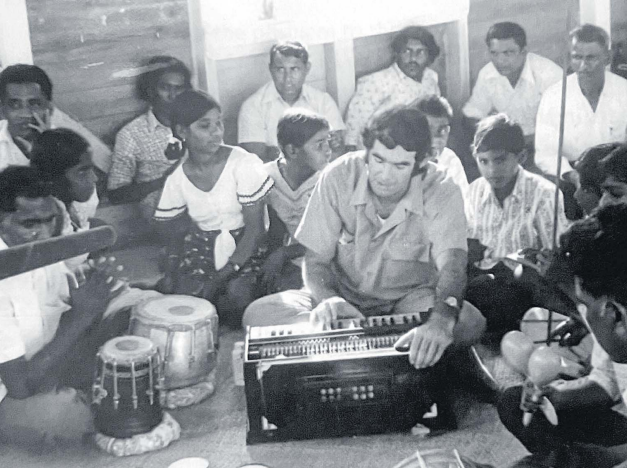IN the final months of 1977, Columban priest Fr Frank Hoare continued his deep immersion in faith and tradition across rural Vanua Levu.
Last week, we documented Fr Hoare’s immersion into the daily Nacamaki Village life in 1977, which included witnessing sacred rituals alongside the deep-rooted ancestral spirit belief and the blend of Christian and indigenous cultures.
This week, we further Fr Hoare’s journey, detailing the rest of his encounters from the last months of 1977 in Vanua Levu, which include deep cultural and spiritual reflections alongside unexpected tribulations from the remaining months of the year.
A strong brew and a stronger suspicion In late October 1977, Fr Hoare approached Nasuva Village with a warning still fresh in his mind.
Years earlier, a fellow priest, Fr Ed Quinn had been “bombed” with overly potent yaqona, a deliberate act in which the drinker is served from the unmixed bottom of the basin, leaving them dizzy and incapacitated.
“Fr Ed keeled over after four or five bowls,” Fr Hoare recounted.
“It took him hours to recover.”
Determined not to suffer the same fate, Fr Hoare kept watch as the villagers invited him for yaqona before and after Mass.
He drank cautiously, ensuring the liquid was properly stirred.
Still, as he made his way back to the parish centre on foot, the drink’s potency took hold.
“The path through the forest seemed to be swaying from side to side.
“I made it home with difficulty. That yaqona was strong.
“The plant must have been at least six years old.”
His suspicions about Nasuva’s legendary brews were fully confirmed.
Dying wishes In contrast to Western ideals of individual rights, Fr Hoare observed that in Fiji, the concept of duty, to family, land (vanua), church, and community, remained paramount. On December 2, in Saivou Village, he was called to hear the confession of a dying man.
After making peace with God, the man summoned his eldest son and detailed every debt still unpaid: a pig, a tabua (whale’s tooth), ten dollars.
Without hesitation, the son accepted the responsibility to repay them.
“It reminded me of Jesus’ last words to his disciples.
“To teach, to baptise, and to continue the work He had begun.”
A spear dance for the Archbishop For weeks leading up to Archbishop Petero Mataca’s visit to Nabala parish, excitement had been building.
Around 50 young people were to be confirmed, and in preparation, the priests invited Beniamino, a blind dau ni vucu (composer) from Bua Vou Village, to create a celebratory meke.
“Beniamino would sit every evening with his three assistant ladies,” he said.
“He’d hum quietly, dictate lyrics, and direct the dance movements as they rehearsed.”
Fr Hoare even joined the performance, his skin oiled, his cheeks painted with black circles, and dressed in a grass skirt and green leaves.
Despite misstepping during the drumming, he was part of the dramatic final leap and shout in front of the archbishop.
In gratitude, he offered Beniamino a dozen packets ofcigarettes.
The composer immediately shared them with the youths around him — a gesture that reflected his generosity and status.
“Beniamino was a man who knew and lived his culture.”
A Christmas journey to the Maternity Ward Christmas Eve Mass was packed at Nabala parish.
Worshippers arrived by truck, bus, and on foot. Hymns rang out joyfully and were followed by a relaxed session of yāqona drinking under the stars.
But Fr Hoare’s quiet Christmas afternoon nap was interrupted by a knock on the door.
A woman who had attended the night’s Mass was now in labor and needed transport to Labasa Hospital, urgently.
“The men decided she should lie on a mattress in the tray of the van,” he said.
“I felt like a present-day Joseph, trying to get her to shelter before the baby arrived.”
The journey was hot and dusty, the road bumpy and long. But they arrived safely.
Later, word came that the baby had been born without complication.
“He was indeed a Christmas baby.”



